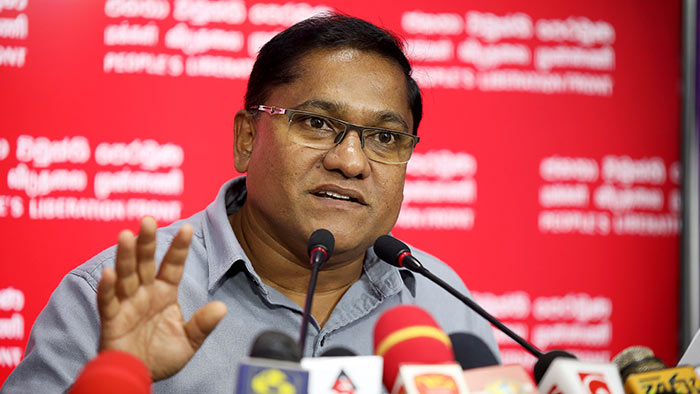
Weeks ahead of crucial parliamentary elections scheduled for November, the newly formed Sri Lankan government, led by President Anura Kumara Dissanayake, has announced the reopening of investigations into seven high-profile cases.
The announcement, made by Cabinet Spokesman Vijitha Herath, includes some of the island’s most controversial unresolved crimes, many of which involve Tamil victims. The move has sparked debate over whether this is a genuine pursuit of justice or a strategic political manoeuvre ahead of the elections.
Though the government has focused on seven specific cases, Dissanayake made clear previously that his government would not be investigating war crimes committed against Tamils during the 2009 Mullivaikkal genocide.
The seven cases under investigation include:
The alleged Central Bank Bond scam of 2015
The Easter Sunday attacks of 2019
The kidnapping and murder of Tamil journalist Sivaram in 2005
The disappearance of political activists Lalith Kumar and Kugan Muruganandan in 2011
The disappearance of Vice Chancellor Sivasubramaniam Raveendranath in 2006
The alleged suicide of businessman Dinesh Schaffter in 2022
A shooting incident outside the W15 hotel in Weligama in 2023
Although these cases are being fast-tracked, Minister Herath stressed that this does not preclude investigations into other unresolved crimes. "We will conduct investigations into all crimes and initiate legal action against those responsible," he claimed.
The latest announcement will still leave many Tamils remaining deeply skeptical. These unresolved cases, which involve Tamil victims, have often been linked to state involvement or deliberate cover-ups. Previous investigations into crimes involving Tamil victims have frequently resulted in little to no legal action, leading to widespread distrust in the government’s motives.
Critics of the move also argue that the timing of the investigations—just weeks before the parliamentary elections—raises concerns about the sincerity of the government’s intentions. With only three National People’s Power (NPP) members currently in Parliament, President Anura Kumara Dissanayake is seeking to secure a larger mandate in the November elections. Some view the reopening of these high-profile cases as an attempt to appear tough on corruption and impunity.
The reopening of these cases also comes amid heightened pressure on the Dissanayake government to deliver on its anti-corruption promises, particularly as the NPP seeks to challenge Sri Lanka’s entrenched political elite. While the government has pledged to initiate legal action against those found culpable, it remains to be seen whether these investigations will lead to arrests or convictions.
In addition to these seven cases, Minister Herath reassured the public that other unresolved cases would also be investigated, including the deaths of rugby player Wasim Thajudeen, journalist Lasantha Wickrematunge, and the disappearance of cartoonist Prageeth Ekneligoda. These cases, much like those involving Tamil victims, remain symbols of Sri Lanka’s struggle with impunity and the need for transparent, genuine justice.
